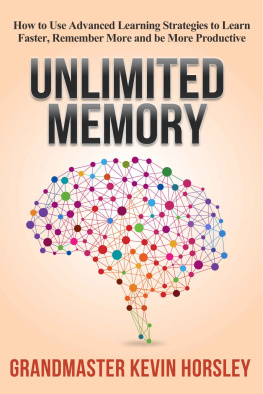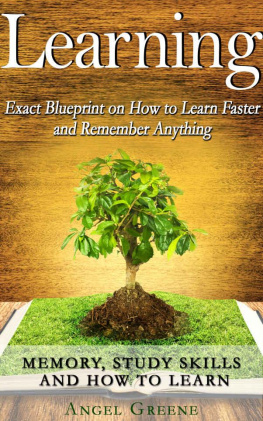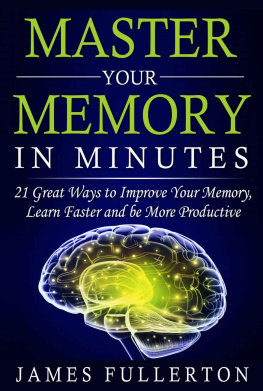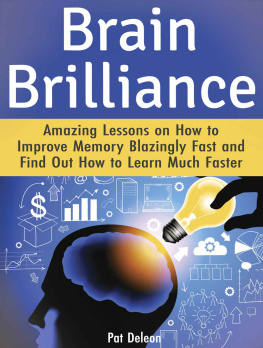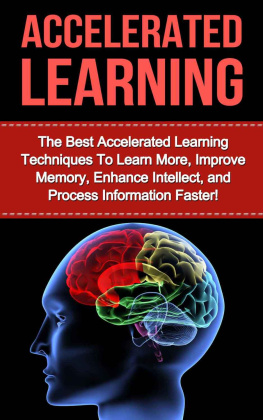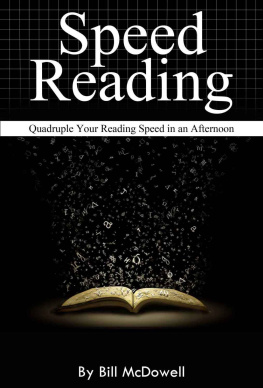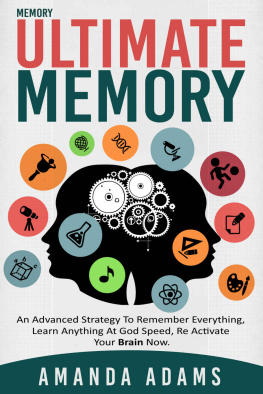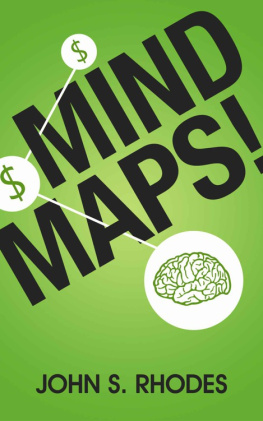How to Learn Faster and Be More Productive
Improve Your Memory, Focus Your Mind and Achieve Powerful Goals
Joseph Milano
Copyright 2021 - All rights reserved.
The content contained within this book may not be reproduced, duplicated or transmitted without direct written permission from the author or the publisher.
Under no circumstances will any blame or legal responsibility be held against the publisher, or author, for any damages, reparation, or monetary loss due to the information contained within this book, either directly or indirectly.
Legal Notice:
This book is copyright protected. It is only for personal use. You cannot amend, distribute, sell, use, quote or paraphrase any part, or the content within this book, without the consent of the author or publisher.
Disclaimer Notice:
Please note the information contained within this document is for educational and entertainment purposes only. All effort has been executed to present accurate, up to date, reliable, complete information. No warranties of any kind are declared or implied. Readers acknowledge that the author is not engaged in the rendering of legal, financial, medical or professional advice. The content within this book has been derived from various sources. Please consult a licensed professional before attempting any techniques outlined in this book.
By reading this document, the reader agrees that under no circumstances is the author responsible for any losses, direct or indirect, that are incurred as a result of the use of the information contained within this document, including, but not limited to, errors, omissions, or inaccuracies.
Table of Contents
Introduction
Its one of those hot Sunday mornings, and you decide to take a shower. As water pours down your body, and you are busy karaoke-ing a song in your head, something happens. A light bulb flickers above your head and draws a smile onto your face You have an idea!
A thought emerged in your subconscious, and it felt like there was room for some information; the thought pushed into your conscious mind and revealed the solution you had been looking for the whole weekend.
The emergence of thought is the first step of conception for any idea to become a reality. It is one of the most amazing things that our mind is capable of producing. Every thought we have can be a ground-breaking idea, a suggestion to improve, or a goal we must set.
Everything we see, smell, taste, hear, or feel and then can recall the sight, taste, or smell of is because it is stored in the mind somewhere. Your favorite perfume, for instance. Or your grandmas shepherds pie recipe.
It is all in the head. We just need to learn how to focus and bring it into the conscious. Each thought that we have creates neural pathways. More and more connections form when these neural pathways link to one another and form a memory. New research suggests that babies as little as two can recall an important event with precision. This further reveals the brilliance of the mind.
The reason our thoughts play an imperative role in our life is that they give birth to a certain mindset. Positive thoughts reap a positive mindset and a negative mindset yields a negative outlook. The right mindset empowers us to set the right goals, work attentively and with focus, and experience success in all walks of life.
The right mindset is the single most important factor in determining a persons success, professionally and personally. The thoughts we have consistently and directly impact our actions and behaviors. It is a lot like tracking metrics on social media. You click an ad or merely search for it on the internet, and then you start to see it everywhere. Once a thought enters the mind, it stays there for a purpose. Thus, getting the fundamental ingredient right is pivotal. The right mindset accounts for the basic distinction between those who succeed and those who dont. Once you become serious about achieving success, you must learn to master your thoughts and develop the right mindset. It is up to us how we connect the dots and create an effect that allows us to see the glass half full as opposed to half empty.
Our beliefs, biases, and attitudes affect how we process and interpret information. An optimistic mindset increases the chances of developing a positive and winning perspective. Tackling challenges, such as setting goals, increasing focus and productivity, and improving memory and learning abilities can become a lot easier if we begin with the right mindset. To successfully achieve any worthwhile feat, you must feel capable of accomplishing it, despite other things. Having an optimistic attitude increases your self-esteem too. It prepares you to build resilience and fight back against adversity. After all, self-dialogue cant be negative.
Other than that, the right mindset leads to the right drive and motivation needed to achieve any objective, big or small. Whether you plan to learn a new language, memorize a book, or head a global firm, you need the right drive and determination to begin. All these ventures will come with a set of unique challenges and obstacles that can only be tackled if you are strong-headed and motivated. You might be tempted to succumb to the difficulties because it seems like an easier way out but having the right willpower and state of mind will empower you to carry on fighting.
Believe me, reaching your goals requires more than a measly dose of motivation and desire. If you want something, you really must want it. You must be willing to go to all lengths to accomplish it. It begins with getting yourself in the right mindset of wanting it, mapping out how you are going to achieve it, gathering the right intellect and resources, and the right motivation and resilience to stay committed.
The same applies to when you are trying to take in more information and become a fast learner. Improving your memory is no different. It is a goal that you set. You want to memorize and have a better recall. You want to be able to lock in as much information as you can at a time without getting distracted. Improving memory is easy. We have all the information we need inside our heads. We just need to know how to unlock it. For example, if you were in an interview and the interviewer asked you to describe yourself and your achievements, you immediately begin to rearrange the memories in your mind, starting from your childhood achievements to college awards. You form an answer almost instantly. The memories in your mind are a representation of the life you have lived. You have been a data-gathering being from the minute you were born.
Think about it; imagine if you didnt have any memories. How would you remember things as simple as how to hold a fork or tie your laces? If you didnt have any memories, how would you have learned to communicate or excel in any task or chore? It is because of your ability to store information and then retrieve it the second you need it, that makes you who you are. Retrieval of memory is as important as the memory itself. Of what use will it be if you cant recall it for when you need it? For example, what good is remembering all the answers when you are out of the exam room, or what good is learning how to swim when you are in the depths of water, gasping for air?
Sadly, over the years, we have associated building ones memory with cramming rote memorization. We let students cram to pass exams without necessarily understanding the concepts or the material very well. Educators believe that understanding leads to recall. Try remembering all the jokes or poems you ever heard when you were young. You might only recall a few despite hearing hundreds of jokes and poems. But why does this happen and what are the ways that best help to commit things to your long-term memory without it being so hit and miss?




